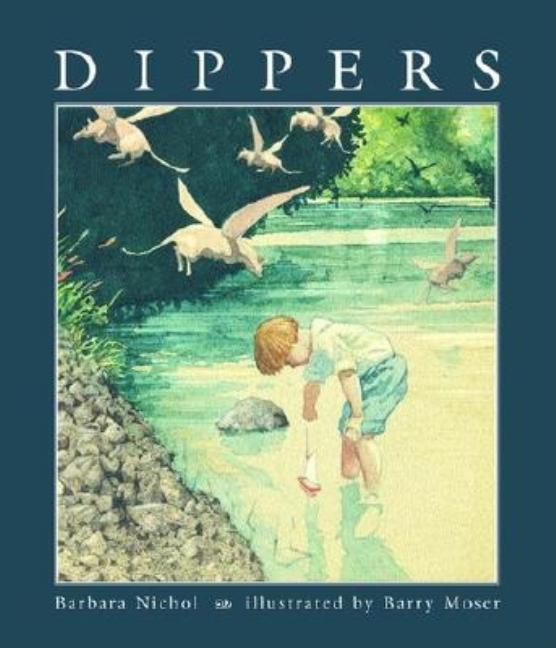Dippers
by Barbara Nichol and Barry Moser
12 Total Resources Book Resume View Text Complexity Discover Like Books
- Grade
- 1-6
- Genre
- Picture Book
- Science Fiction / Fantasy
Year Published 1997
Word Count 2,708
- Text Complexity
- Lexile Level: Currently Not Available
- ATOS Reading Level: 3.7
- AR Quiz Numbers
- Quiz 20412, 0.5 AR Points
- Curricular Area
- Science
- English Language Arts
Our Original Resources 6
Audio Name Pronunciation with Barry Moser
Created by TeachingBooks
Cultural Representation Reflection
Created by TeachingBooks
Story Map Multi-Leveled Lesson
Created by TeachingBooks
Vocabulary Graphic Organizers
Created by TeachingBooks
Comprehension Graphic Organizers
Created by TeachingBooks
Submit Qualitative Text Complexity Rubric
Created by TeachingBooks
Book Guides, Activities & Lessons 3
Cultural Representation Reflection
Created by TeachingBooks
Story Map Multi-Leveled Lesson
Created by TeachingBooks
Comprehension Graphic Organizers
Created by TeachingBooks
Vocabulary Resources 1
Vocabulary Graphic Organizers
Created by TeachingBooks
If you find a 3rd party resource that isn't accessible to you, please email the name and link of the resource, as well as any details about your needs, to accounts@TeachingBooks.net.
Images courtesy of publishers, organizations, and sometimes their X (formerly Twitter) handles.




